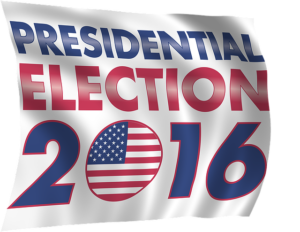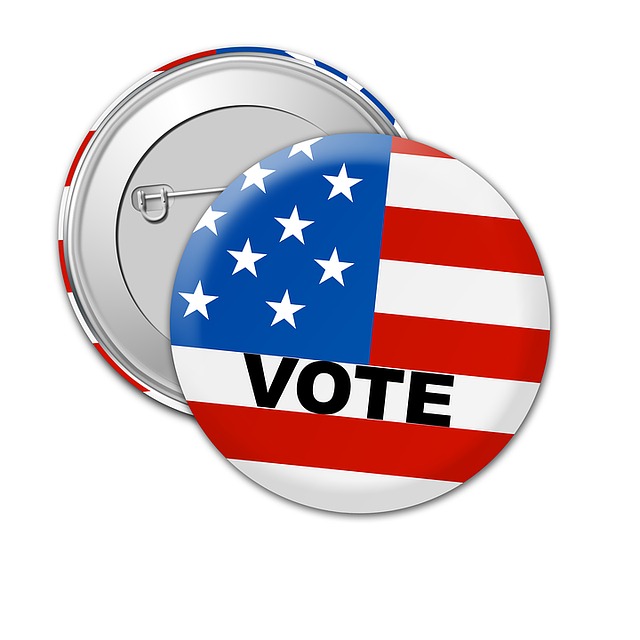My Vote Might Not!
As we come down to the final few days of the contentious 2016 US Presidential Election I have some thoughts about my vote and the voting process here in the USA, and particularly how democratic the latter really is.
Here’s the problem. Take my own case as an example. I live in Massachusetts, which is a staunch Democratic state. If I want to vote for Trump (which I’m not at all sure I do!) then I might as well not vote, as my vote will have no effect. In fact if I want to vote for any candidate other than the Democratic one I might as well not bother, because it will be the same result either way.
Background
How can that be democratic? Here’s some background for my non-US readers that might help explain it. Voting is performed on a state-by-state basis. States then count the votes and assign their Electoral College members accordingly. Some states apportion their electors in the ratio of the various party votes received. Others are “winner takes all”, so these assign all their college members to the winning party, no matter how small the winning majority might be. The number of members each state gets is related to the number of members of Congress they have. Click here for more Information about how the college is made up.
Voting in Massachusetts
 Massachusetts is a “winner-take-all” state and has 11 of the 538 electors. Because the state has voted Democratic in every election this century, voting for any other candidate/party is unlikely to have an effect, and is the same as not voting at all. This is borne out by the states the presidential candidates visit, and where they spend their advertising dollar. With Massachusetts “in-the-bag” for the Democrats, expending time canvassing support, or spending money there, would be a waste of both. It makes sense for them to concentrate on “swing” states like Florida, Colorado, Ohio and Pennsylvania. Clearly they consider the outcome in all the other states a foregone conclusion and not likely to be influenced either way by expending time or money.
Massachusetts is a “winner-take-all” state and has 11 of the 538 electors. Because the state has voted Democratic in every election this century, voting for any other candidate/party is unlikely to have an effect, and is the same as not voting at all. This is borne out by the states the presidential candidates visit, and where they spend their advertising dollar. With Massachusetts “in-the-bag” for the Democrats, expending time canvassing support, or spending money there, would be a waste of both. It makes sense for them to concentrate on “swing” states like Florida, Colorado, Ohio and Pennsylvania. Clearly they consider the outcome in all the other states a foregone conclusion and not likely to be influenced either way by expending time or money.
So does that mean that all those minority voters in solid Democratic or Republican states are disenfranchised? Well yes and no. They certainly were in 2000 and previous to that in 1888 when Grover Cleveland won the popular vote but lost the Electoral College. But more often that not the Electoral College votes echoes the popular vote. But is it democratic? The vote is for Federal Government positions and the electoral system should guarantee that it reflect the will of all the people, irrespective of the state they live in. The fact that it is possible that the winning candidate may not be the one receiving the most actual votes cast by the people makes it a potentially undemocratic system. That’s not what the USA is all about, or says it is!
The Electoral College
So why is it this way? Basically the Founding Fathers did not trust the people to elect good presidents. Hamilton said “The people are turbulent and changing; they seldom judge or determine right. Give therefore to the first class a distinct, permanent share in the government. They will check the unsteadiness of the second.” However, Jefferson said “I am not among those who fear the people. They, and not the rich, are our dependence for continued freedom. Whenever the people are well-informed, they can be trusted with their own government.” This difference of opinion lead to the Electoral College compromise.
There have many initiatives to replace the Electoral College with a more democratic system based on the popular vote, but none seem near to becoming law. You can read more about these reforms here.
Between the Devil and the Deep

 So for now I remain in a quandary to know what to do on Nov 8th. I can’t vote for Trump, He’s contrary to everything this country stands for, and we must learn from Germany in the 30s. I don’t want to vote for Hillary as I don’t subscribe to the Democratic view of “tax and spend” and “big government”. I’d like to vote for Gary Johnson, but even I know what “Aleppo” means and could probably name some world leader I admire, given 15 seconds thought. And if I don’t vote for Hillary then my vote here in Massachusetts will almost certainly fall on stony ground, and so would be the same as not voting at all, which goes against everything I believe in!
So for now I remain in a quandary to know what to do on Nov 8th. I can’t vote for Trump, He’s contrary to everything this country stands for, and we must learn from Germany in the 30s. I don’t want to vote for Hillary as I don’t subscribe to the Democratic view of “tax and spend” and “big government”. I’d like to vote for Gary Johnson, but even I know what “Aleppo” means and could probably name some world leader I admire, given 15 seconds thought. And if I don’t vote for Hillary then my vote here in Massachusetts will almost certainly fall on stony ground, and so would be the same as not voting at all, which goes against everything I believe in!
Ah, I have it! We have a house in Florida, so maybe I’ll move my residency there, where at least my vote will count and the candidates will come and visit me!
Here’s what Wikipedia says about the college:
“Electors are apportioned to each of the 50 states as well as to the District of Columbia. The number of electors in each state is equal to the number of members of Congress to which the state is entitled, while the Twenty-third Amendment grants the District of Columbia the same number of electors as the least populous state, currently three. Therefore, there are currently 538 electors, corresponding to the 435 Representatives and 100 Senators, plus the three additional electors from the District of Columbia.”


Recent Comments